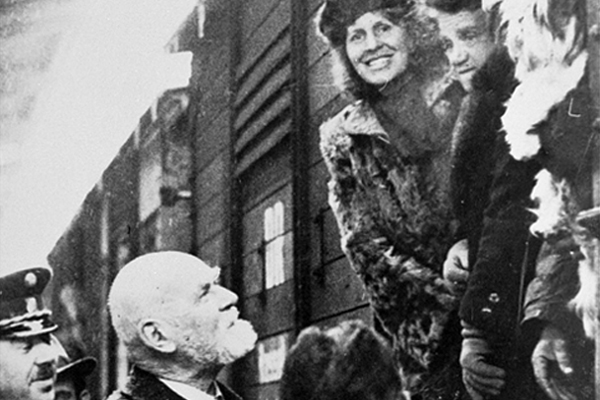
Austrian Jews who spent the war years in Shanghai return to Vienna in 1947 on a transport arranged by the United Nations Relief and Rehabilitation Administration. US Holocaust Memorial Museum, courtesy of the National Archives and Records Administration
“Return Home: Holocaust Survivors Reestablishing Lives in Postwar Vienna,” examines the experiences of the few thousand Austrian Jews who chose to resettle in their hometown after the Holocaust.
The Museum is the United States’ repository of the International Tracing Service archive—digital copies of the almost 200 million documents collected by the Allies at the end of World War II and stored in Bad Arolsen, Germany. Dr. Elizabeth Anthony is responsible for the promotion of the scholarly use of the ITS archive, ITS-related academic programming and outreach, and partner programs with other institutions. She received her PhD in history at Clark University in 2016 and also holds a Master of Social Work from the University of Maryland, a Bachelor of Arts in economics from St. Mary’s College of Maryland, and was the recipient of a 2010–2011 Fulbright student grant to Austria.
Speakers
Dr. Elizabeth Anthony, International Tracing Service (ITS) and Partnerships Program Manager, Jack, Joseph and Morton Mandel Center for Advanced Holocaust Studies, United States Holocaust Memorial Museum
Held by Florida Atlantic University’s Dorothy F. Schmidt College of Arts and Letters and co-sponsored by Dr. Alan L. Berger, Raddock Eminent Scholar Chair of Holocaust Studies and Director, Study for the Center of Values and Violence after Auschwitz.
This program is made possible by the Campus Outreach Lecture Program of the United States Holocaust Memorial Museum's Jack, Joseph and Morton Mandel Center for Advanced Holocaust Studies, supported by Jack and Goldie Wolfe Miller.
